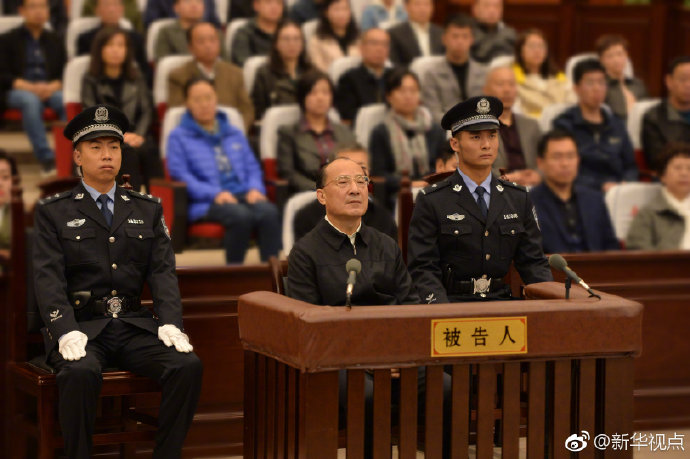Shandong ex-official imprisoned over graft
By Zhang Yan | China Daily | Updated: 2019-03-20 09:39

Ji Xiangqi, former vice-governor of Shandong province, was sentenced to 14 years in prison for taking bribes and embezzlement on Tuesday.
According to Jinzhong Intermediate People's Court in Shanxi province, he was convicted of accepting bribes, sentenced to 12 years and fined 2 million yuan ($297,900).
He also was found guilty of embezzlement, which carried a jail term of six years and a fine of 1 million yuan. The court decided on a combined sentence of 14 years in prison and a fine of 3 million yuan.
All his illegal gains will be confiscated and handed over to the State, it said.
The court said Ji used his position to gain benefits for others in business and bidding for projects, and then accepted large bribes paid in cash or property valued at more than 25.7 million yuan from 2003 to 2017.
During those 14 years, he served primarily as president of Lushang Group, president of Shandong International Trading Center, the legal representative of Shandong Inzone Art Museum and vice-governor of Shandong.
It also found that between 2004 and 2013, when he served as president of Lushang Group and legal representative of the art museum, he used his position to misappropriate artwork worth about 12.24 million yuan that belonged to a public gallery under his supervision.
"Because he confessed his crimes, provided additional information about his crimes and actively cooperated with us to return the illicit assets, we gave him lenient punishment," the court said in a statement.
In January 2018, Ji was placed under investigation by the Communist Party of China Central Commission for Discipline Inspection and the National Supervisory Commission for serious violations of Party discipline and laws. He was expelled from the Party and removed from his administrative post.
Since late 2012, the country has conducted a sweeping drive to fight both "tigers and flies", referring to high-ranking and low-ranking corrupt officials.
To date, more than 400 high-ranking officials have undergone graft investigations.
























